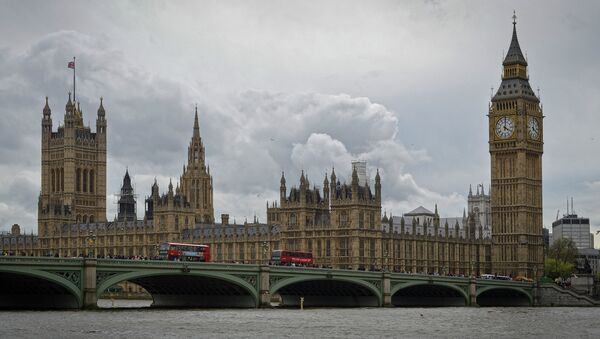WASHINGTON (Sputnik) — The primary EU treaties establish principles of association based on the free movement of people, goods and services, finances and a single market. Britain has already chosen to opt out of the Schengen Agreement and the European Monetary Union.
“One of the biggest problems is going to be the liberty of circulation [of people],” Wolzfeld said of the upcoming British referendum on EU membership. “If Britain goes out, these liberties disappear. So there will be again controls at the borders, there will be again separation.”
British Prime Minister David Cameron has called for a referendum on EU membership to take place no later than December 2017. Great Britain has sought to renegotiate certain terms of its EU membership, particularly regarding immigration into the United Kingdom from neighboring EU member states.
“He [Cameron] wants to attack some of the fundamental liberties that are in the [Lisbon] Treaty,” Wolzfeld said of the British attempt to renegotiate elements of one of the primary EU treaties.
Wolzfeld, whose country assumed the presidency of the European Commission this year, alleged that the British desire to restrict immigration threatens a key tenet of the Lisbon Treaty, the free circulation of people.
“You cannot start to put barriers up, because once you have barriers, they will not be lifted anymore.”
Wolzenfeld stated that, ultimately, a British exit from the EU is not likely.
The City of London is “violently opposed” to a Brexit and an exit from the EU would raise the risk of the United Kingdom losing a pro-European Scotland. “Then they would have even bigger problems,” Wolzenfeld said.
In June 2015, Cameron met with the other 27 EU leaders to insist on changes to the founding EU documents to assure greater sovereignty for Great Britain.
Leaders of the EU have strongly opposed the idea of changing their founding documents.

